A special primary election will be held on September 13, 2016, to fill a general election ballot vacancy for Ohio’s 8th Congressional District. Democratic nominee Corey Foister withdrew from the race to pursue an out-of-state opportunity he said he couldn’t […]
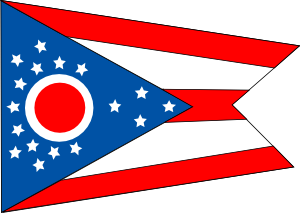 A special primary election will be held on September 13, 2016, to fill a general election ballot vacancy for Ohio’s 8th Congressional District.
A special primary election will be held on September 13, 2016, to fill a general election ballot vacancy for Ohio’s 8th Congressional District.
Democratic nominee Corey Foister withdrew from the race to pursue an out-of-state opportunity he said he couldn’t pass up.
Steven Fought, a former congressional staffer from Toledo, was the only Democrat to file for the special election ballot. In November, he will challenge recently elected Republican U.S. Rep. Warren Davidson for the seat in former House Speaker John Boehner’s district. Davidson won a June 7 special election to complete Boehner’s term and is seeking a full term in November.
July 7, 2016 •
Ohio Legislator Seeks to Eliminate Certain Special Elections
Ohio Sen. Kris Jordan recently introduced a bill to eliminate special elections in February and August. His proposal is the result of historically low voter turnout in Ohio special elections. Fewer than 10 percent of residents usually participate in any […]
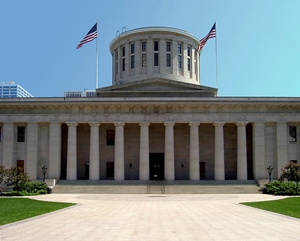 Ohio Sen. Kris Jordan recently introduced a bill to eliminate special elections in February and August.
Ohio Sen. Kris Jordan recently introduced a bill to eliminate special elections in February and August.
His proposal is the result of historically low voter turnout in Ohio special elections. Fewer than 10 percent of residents usually participate in any special election, and an election can cost the state $4 to $6 million.
June 7, 2016 •
Ohio Voters to Fill Boehner’s Seat
Voters in six Ohio counties will decide today who will fill the congressional seat left vacant by former House Speaker John Boehner. Republican Warren Davidson is facing off against Democrat Corey Foister and Green Party candidate Jim Condit Jr. The […]
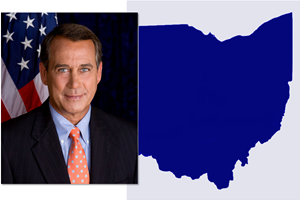 Voters in six Ohio counties will decide today who will fill the congressional seat left vacant by former House Speaker John Boehner.
Voters in six Ohio counties will decide today who will fill the congressional seat left vacant by former House Speaker John Boehner.
Republican Warren Davidson is facing off against Democrat Corey Foister and Green Party candidate Jim Condit Jr. The winner will complete Boehner’s term.
Low voter turnout is expected with no other races on the ballot.
April 12, 2016 •
Ohio Lawmaker Introduces Bill to Amend Campaign Finance Law
Ohio Rep. John Becker recently introduced campaign finance legislation to simplify and modernize current state law. House Bill 502 would put an end to paper filing for local candidates and committees and phase in electronic filing over the next 3 […]
 Ohio Rep. John Becker recently introduced campaign finance legislation to simplify and modernize current state law. House Bill 502 would put an end to paper filing for local candidates and committees and phase in electronic filing over the next 3 years.
Ohio Rep. John Becker recently introduced campaign finance legislation to simplify and modernize current state law. House Bill 502 would put an end to paper filing for local candidates and committees and phase in electronic filing over the next 3 years.
County-wide candidates could begin filing electronically in 2017, school board candidates in 2018, and city and village candidates in 2019. Local filings would be submitted in the same manner as state filings on the secretary of state’s website.
Other provisions of Becker’s proposal include rounding contribution limits to the nearest $100, eliminating campaign finance filing requirements for committees and political contributing entities raising or spending less than $2,000 in a reporting period, delaying post-general campaign finance reports until the first week of January, and eliminating the itemization requirement when reporting income or expenses for a single entity totaling less than $100.
April 5, 2016 •
Proud to Be a Sponsor of Ohio Chamber of Commerce Annual Meeting
State and Federal Communications is excited to be a Bronze Sponsor of the Ohio Chamber of Commerce Annual Meeting and Legislative Reception in Columbus, Ohio on April 5, 2016! The keynote speaker for the event is former Speaker of the […]
 State and Federal Communications is excited to be a Bronze Sponsor of the Ohio Chamber of Commerce Annual Meeting and Legislative Reception in Columbus, Ohio on April 5, 2016! The keynote speaker for the event is former Speaker of the U.S. House of Representatives John Boehner.
State and Federal Communications is excited to be a Bronze Sponsor of the Ohio Chamber of Commerce Annual Meeting and Legislative Reception in Columbus, Ohio on April 5, 2016! The keynote speaker for the event is former Speaker of the U.S. House of Representatives John Boehner.
State and Federal Communications President and CEO Elizabeth Bartz and a team from the company are in attendance.
March 30, 2016 •
Columbus City Council Passes New Ethics Legislation
The Columbus City Council passed three new pieces of ethics legislation on Monday, March 28, strengthening financial disclosure provisions and amending city campaign finance and lobbying laws. Ord. 0084-2016 requires lobbyists to file updated registration statements in January, May, and […]
 The Columbus City Council passed three new pieces of ethics legislation on Monday, March 28, strengthening financial disclosure provisions and amending city campaign finance and lobbying laws.
The Columbus City Council passed three new pieces of ethics legislation on Monday, March 28, strengthening financial disclosure provisions and amending city campaign finance and lobbying laws.
Ord. 0084-2016 requires lobbyists to file updated registration statements in January, May, and September of each year. Knowingly failing to register as a lobbyist will be a third degree misdemeanor, while knowingly filing a false statement will be a misdemeanor of the first degree.
Although state campaign finance laws apply to municipal elections, Ord. 0087-2016 requires additional election period communication disclosure statements to be filed with the Franklin County Board of Elections and with the city clerk if contributions or expenditures for the reporting period equal or exceed $10,000.
Among other changes, Ord. 0086-2016 expands financial disclosure requirements for public office holders and candidates, requiring a description of each gift or aggregate of gifts over $75 from certain sources.
All three ordinances go into effect September 28, 2016.
March 21, 2016 •
Proposed State Ballot Initiative Includes Revolving Door Provision for Ohio Legislators
Attorney General Mike DeWine recently approved language for a proposed ethics amendment to the Ohio Constitution. The proposal includes a revolving door provision, including a two-year ban on former legislators doing business with the Legislature. The issue must be reviewed […]
 Attorney General Mike DeWine recently approved language for a proposed ethics amendment to the Ohio Constitution. The proposal includes a revolving door provision, including a two-year ban on former legislators doing business with the Legislature.
Attorney General Mike DeWine recently approved language for a proposed ethics amendment to the Ohio Constitution. The proposal includes a revolving door provision, including a two-year ban on former legislators doing business with the Legislature.
The issue must be reviewed by the Ohio Ballot Board to determine how it should appear on the ballot. Supporters of the amendment must gather at least 305,591 signatures of registered Ohio voters in order to reach the fall ballot.
February 12, 2016 •
Public Hearing Scheduled to Discuss Changes to Columbus, OH Ethics Laws
Columbus City Council President Zach Klein will hold a public hearing on proposed ethics legislation on Wednesday, February 17, 2016. The proposed changes enhance transparency and accountability for lobbyists, strengthen ethics disclosure laws, and amend campaign finance reporting requirements. Public […]
 Columbus City Council President Zach Klein will hold a public hearing on proposed ethics legislation on Wednesday, February 17, 2016. The proposed changes enhance transparency and accountability for lobbyists, strengthen ethics disclosure laws, and amend campaign finance reporting requirements.
Columbus City Council President Zach Klein will hold a public hearing on proposed ethics legislation on Wednesday, February 17, 2016. The proposed changes enhance transparency and accountability for lobbyists, strengthen ethics disclosure laws, and amend campaign finance reporting requirements.
Public testimony will be accepted. Comments will be limited to three minutes. Those wishing to comment must fill out a speaker slip at Columbus City Hall on the day of the hearing.
February 10, 2016 •
Cleveland City Council Raises Campaign Contribution Limits for Local Candidates
Cleveland City Council voted Monday, February 8, to increase campaign contribution limits for mayoral and council candidates. After much debate, the Finance Committee agreed on a $5,000 annual limit from individuals and a $7,500 annual limit from political action committees […]
 Cleveland City Council voted Monday, February 8, to increase campaign contribution limits for mayoral and council candidates.
Cleveland City Council voted Monday, February 8, to increase campaign contribution limits for mayoral and council candidates.
After much debate, the Finance Committee agreed on a $5,000 annual limit from individuals and a $7,500 annual limit from political action committees giving to mayoral candidates. Individual contributions to council candidates were capped at $1,500 annually, with PAC contributions limited to $3,000.
The ordinance passed with three council members voting against it.
Photo of the Cleveland skyline by Eric Drost in Wikimedia Commons.
January 26, 2016 •
Cleveland City Council to Consider Raising Campaign Contribution Limits
Cleveland City Council President Kevin Kelley wants to raise the limits on political contributions in order to offer challengers a fair fight against incumbent candidates with established war chests. Individual and PAC contributions to mayoral candidates would be capped at […]
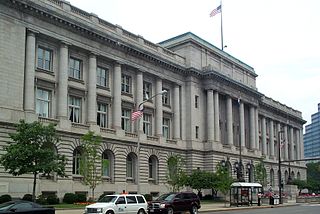 Cleveland City Council President Kevin Kelley wants to raise the limits on political contributions in order to offer challengers a fair fight against incumbent candidates with established war chests. Individual and PAC contributions to mayoral candidates would be capped at $10,000 per calendar year. The current city ordinance permits just $1,000 from individuals and $2,000 from PACs. The proposed legislation would also increase contribution limits for council candidates up to $1,500 from individuals and $3,000 from PACs.
Cleveland City Council President Kevin Kelley wants to raise the limits on political contributions in order to offer challengers a fair fight against incumbent candidates with established war chests. Individual and PAC contributions to mayoral candidates would be capped at $10,000 per calendar year. The current city ordinance permits just $1,000 from individuals and $2,000 from PACs. The proposed legislation would also increase contribution limits for council candidates up to $1,500 from individuals and $3,000 from PACs.
Critics argue the proposal would allow special interests to buy influence at City Hall. Kelley, however, believes $10,000 is not enough money to make a mayor feel beholden to a donor. Considering most Ohio cities have no campaign contribution limits, Kelley suggests a higher limit is still better than no limit at all.
The legislation will be discussed at the Finance Committee meeting on Wednesday, January 27, and will likely be up for passage the same night.
Photo of Cleveland City Hall by Stu Spivack on Wikimedia Commons.
January 7, 2016 •
Columbus Mayor Proposes New Lobbying and Campaign Finance Ordinances
Columbus Mayor Andrew Ginther has proposed three new ordinances providing for an increase in lobbying oversight and gift disclosure, additional campaign finance disclosure, and the hiring of an inspector general. Columbus City Council is expected to hold a public hearing […]
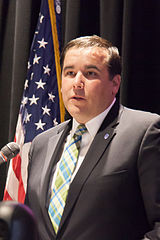 Columbus Mayor Andrew Ginther has proposed three new ordinances providing for an increase in lobbying oversight and gift disclosure, additional campaign finance disclosure, and the hiring of an inspector general. Columbus City Council is expected to hold a public hearing on the proposals in the coming weeks and to vote on them by late February.
Columbus Mayor Andrew Ginther has proposed three new ordinances providing for an increase in lobbying oversight and gift disclosure, additional campaign finance disclosure, and the hiring of an inspector general. Columbus City Council is expected to hold a public hearing on the proposals in the coming weeks and to vote on them by late February.
With the lobbying proposal, Ginther wants the city to establish a new lobbyist registry to track the activity of lobbyist vendors seeking contracts with the city. Additionally, lobbyists would be required to disclose expenditures made on elected officials and department directors.
Photo of Mayor Ginther by David Paul on Wikimedia Commons.
November 3, 2015 •
Gov. Kasich Sets Special Election to Fill Boehner’s Seat
Ohio Gov. John Kasich set a special election for June 7, 2016, to fill the seat of former U.S. House Speaker John Boehner. A primary will be held March 15, the same day as the state’s presidential primary. Interested individuals […]
 Ohio Gov. John Kasich set a special election for June 7, 2016, to fill the seat of former U.S. House Speaker John Boehner. A primary will be held March 15, the same day as the state’s presidential primary.
Ohio Gov. John Kasich set a special election for June 7, 2016, to fill the seat of former U.S. House Speaker John Boehner. A primary will be held March 15, the same day as the state’s presidential primary.
Interested individuals have until Dec. 16 to file candidacy petitions with the Butler County Board of Elections.
October 12, 2015 •
Columbus Mayoral Candidate Proposes New Ethics Plan
Columbus mayoral candidate Andrew Ginther recently proposed a plan for new ethics rules for lobbyists and elected officials. His plan would amend the definition of lobbyist and expand lobbyist reporting requirements. Elected officials would be required to report all gifts […]
 Columbus mayoral candidate Andrew Ginther recently proposed a plan for new ethics rules for lobbyists and elected officials. His plan would amend the definition of lobbyist and expand lobbyist reporting requirements. Elected officials would be required to report all gifts received as well as participate in annual ethics training. The plan would also require additional disclosure in city campaign finance filings beyond the requirements already set by state law.
Columbus mayoral candidate Andrew Ginther recently proposed a plan for new ethics rules for lobbyists and elected officials. His plan would amend the definition of lobbyist and expand lobbyist reporting requirements. Elected officials would be required to report all gifts received as well as participate in annual ethics training. The plan would also require additional disclosure in city campaign finance filings beyond the requirements already set by state law.
Ginther, president of Columbus City Council, faces Franklin County Sheriff Zach Scott in the November election; Scott also has a plan for tightening restrictions on lobbyists and proposing gift rules.
September 25, 2015 •
United States Sixth Circuit Upholds District Court Ruling Regarding Contributions to Ohio Judicial Candidates
The Sixth Circuit Court of Appeals denied Ohio Supreme Court candidate Colleen O’Toole’s motion for a preliminary injunction to enjoin enforcement of an Ohio Code of Judicial Conduct Rule 4.4(E). This rule imposes restrictions on when a judicial campaign committee […]
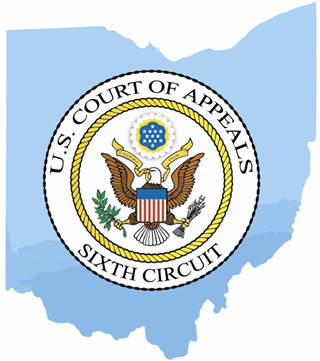 The Sixth Circuit Court of Appeals denied Ohio Supreme Court candidate Colleen O’Toole’s motion for a preliminary injunction to enjoin enforcement of an Ohio Code of Judicial Conduct Rule 4.4(E). This rule imposes restrictions on when a judicial campaign committee may solicit and receive campaign contributions. Judicial candidate committees for 2016 may begin soliciting and receiving contributions no earlier than 120 days before the first Tuesday after the first Monday in March and may continue to accept contributions until 120 days after the general election.
The Sixth Circuit Court of Appeals denied Ohio Supreme Court candidate Colleen O’Toole’s motion for a preliminary injunction to enjoin enforcement of an Ohio Code of Judicial Conduct Rule 4.4(E). This rule imposes restrictions on when a judicial campaign committee may solicit and receive campaign contributions. Judicial candidate committees for 2016 may begin soliciting and receiving contributions no earlier than 120 days before the first Tuesday after the first Monday in March and may continue to accept contributions until 120 days after the general election.
O’Toole’s campaign committee claims the rule violates the First Amendment by restricting political speech and it violates the Fourteenth Amendment by treating judicial campaign committees differently than other political organizations. The committee failed to demonstrate a likelihood of success on the merits of any claim.
While the contribution restrictions may not be the least restrictive means of maintaining public confidence in judicial integrity, the court found the regulation need only be narrowly tailored, not perfectly tailored. Moreover, perfect tailoring would be impossible given the intangible nature of public confidence.
The court also found it permissible to treat judicial campaign committees differently than political action committees and other political organizations because of the unique nature of judicial elections. Interests in maintaining the integrity, impartiality, and independence of the judiciary are inherently different from those implicated by other political campaigns. More simply, judicial elections may be regulated differently than political elections because the role of judges differs from that of politicians.
State and Federal Communications, Inc. provides research and consulting services for government relations professionals on lobbying laws, procurement lobbying laws, political contribution laws in the United States and Canada. Learn more by visiting stateandfed.com.


